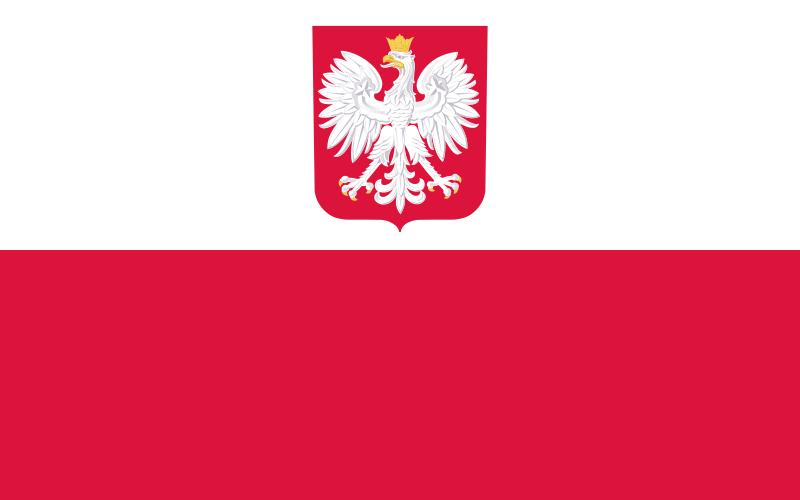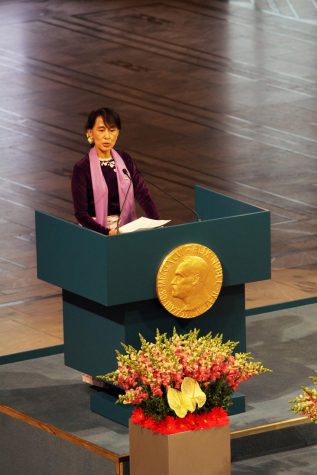Vox Populi, Vox Dei? Populism in Poland and the E.U.’s Future
Photo Credit: Aotearoa
October 7, 2018
The European Union is considered one of the greatest achievements of our time, uniting member states into one common market under a shared set of democratic ideals that is often credited with stopping more fruitless conflict in Europe since World War 2’s end. Even though it arose from centuries of thought and decades of economic policy, the E.U.’s political unity has not always been guaranteed as recent events like Brexit show. The most difficult political issues for the bloc have emerged in Eastern Europe, particularly Romania, Hungary, and Poland.
One foggy day in April 2010, a lone jet bearing the insignia of the Polish Air Force descended quickly towards Smolensk airport, crashing abruptly before reaching the runway, killing nearly all high ranking Polish government officials: the President, General Staff, National Bank chief, and several Polish parliament members. Investigators from both Russia and Poland determined that human error caused the crash, but the late President’s twin brother and leader of Poland’s right-wing Law and Justice Party (PiS), Jarosław Kaczyński, claimed it was a carefully planned political assassination. The crash came only five years before Kaczyński’s PiS party secured a majority in both Poland’s legislatures and the Presidency, bringing the cresting populist wave to Poland’s front door. The Law and Justice Party traces its roots back to the Solidarność, or “Solidarity” movement that overthrew repressive one-party rule in then-Communist Poland, and today champions a right-wing, populist agenda with a focus on social conservatism and economic interventionism. PiS joined Hungarian, Slovakian, French, British, and Italian politicians in riding populist sentiments that led to PiS adopting a semi-Eurosceptic, anti-migrant, and – as the name implies – “law and order” stance on crucial policy issues.
To complete their control of the executive and legislative branches, PiS sought to rein in the judicial branch through a series of radical legislative changes starting with forcing the Polish Constitutional Court to accept five new judges appointed by a law the Court voided as unconstitutional. Immediately after the European Union began investigating Poland for violating judicial independence, PiS merged the office of jus-
tice minister and the attorney-general, giving the officeholder control of all prosecutors. In a dramatic show of force, the European Commission – the semi-executive branch of the European Union – formally launched infringement procedures in response to the judicial reforms, which were then succeeded by another PiS initiative forcing one-third of Poland’s Supreme Court judges to retire and forcing nominees through a PiS-dominated commission. The European Commission finally triggered Article 7 of the E.U.’s foundational Lisbon Treaty, which allows a member state’s voting rights in the bloc to be suspended for breach of democratic principles, and opened a new legal case that is scheduled to go before the
European Court of Justice.
Poland shares its Euro-scepticism with Hungary’s Prime Minister Viktor Orban, Italy’s Giuseppe Conte, and numerous other politicians, notably Nigel Farage in Britain, who promote nationalistic and anti-integrationist policies challenging the E.U.’s economic, cultural, and political integration. The E.U., notably, is not a federal system, but instead relies on the cooperation or collective bargaining of member states to enforce its rules. In uniting a range of cultures and societies under one voluntary organization, the E.U. depends on deeply-rooted European identity and transnationalism – putting one’s common heritage above national identity. Because it relies on identity and voluntary rule making, the E.U.’s existence could be threatened on several fronts by populism, financial crises and Eurozone instability, a large migrant influx, and potential member state exits like Brexit. The E.U. has, however, slowly created a quasi-federal structure by amalgamating various departments into three branches: the Executive under the European Commission, the Legislative under the European Parliament and Council, and the Judiciary under the European Court of Justice.
These gradual shifts from confederation towards federation in E.U. policy has ignited fears in member states that their identity or government will be superseded by a mega-state, and populist politicians have been quick to capitalise on those fears. If the E.U. is to survive as a pan-European entity, it will have to assuage concerns from Eurosceptics in the East that member states remain sovereign and Europhiles in the West that the Union take on a greater role in mitigating crises. While it may be considered one of the greatest successes of recent history, the European Union must evolve to stay relevant in an age of rapid change, but it must always do so with the old adage “vox populi, vox dei” in mind.











